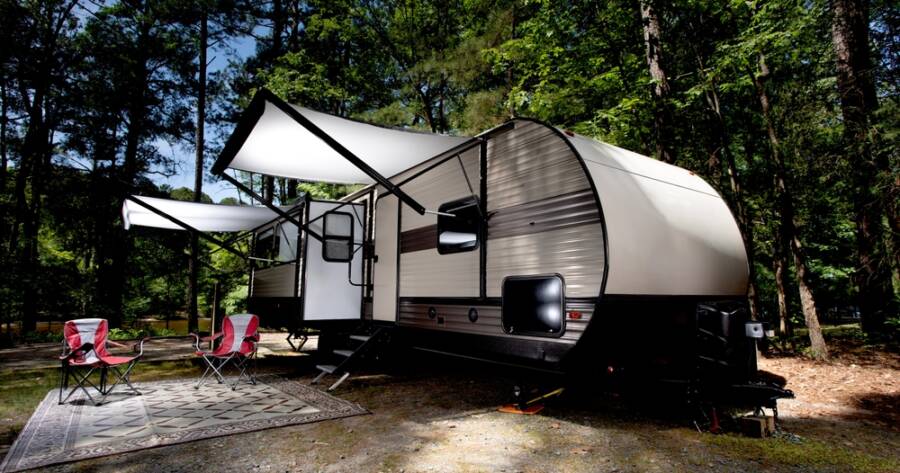Embarking on a camping adventure offers an unparalleled opportunity to explore nature while enjoying the comforts of home. For many outdoor enthusiasts, a travel trailer RV combines the best of both worlds, providing mobility and convenience. Whether you’re considering buying a new model or a used gem, travel trailers can cater to diverse camping styles and preferences. Learn about essential considerations when purchasing a travel trailer, so that you can better navigate the options and find the perfect match for your camping dreams.
Understanding Your Needs and Preferences
Before diving into the world of travel trailers, it’s crucial to assess your camping needs and preferences. Consider the type of camping you plan to do—whether you gravitate towards weekend getaways or extended road trips. Additionally, evaluate the environment in which you’ll camp. Different terrains might require specific features or limitations in trailer size and capabilities.
The number of travelers should also influence your decision. Larger groups require more sleeping quarters and storage space, while solo adventurers or couples might prioritize compact simplicity. Listing priorities—such as a spacious kitchen, modern bathroom, or outdoor living capabilities—will help narrow potential choices and erase indecision when viewing options.
New vs. Used Travel Trailers: Weighing the Pros and Cons
Deciding between a new or used travel trailer involves weighing the benefits and drawbacks of each option. New travel trailers come equipped with the latest features, modern technologies, and warranties that provide peace of mind regarding repairs and maintenance. Customization options are abundant, allowing buyers to tailor features to their specific desires.
On the other hand, used travel trailers may offer significant cost savings, providing more bang for your buck if previous owners have taken good care of them. While there might be some signs of wear, well-maintained models provide a reliable and budget-friendly solution. Buying used requires extra diligence—conduct thorough inspections or consider hiring professionals to verify condition and functionality.
Features and Amenities to Consider
Modern travel trailers come with a multitude of features designed to enhance camping comfort. Key amenities might include kitchen facilities, a full bathroom, climate control, and entertainment systems. Consider which features are essential versus those you can compromise on.
Functional kitchens with ample workspace and appliances facilitate meal preparation, while cozy sleeping areas ensure restful nights. Bathroom facilities range from simple porta-potties to full baths, impacting convenience during your travels. Climate control options, such as built-in heaters or air conditioning, provide comfort in varying weather conditions. Analyze how often you’ll use each feature to guide your priorities when shopping.
Towing Capacity and Vehicle Compatibility
An often-overlooked aspect of purchasing a travel trailer is ensuring compatibility with your towing vehicle. Understanding the towing capacity of your car or truck is crucial to ensure safe and efficient hauling. Keep in mind that towing capacity includes not only the trailer’s weight but also the weight of items packed within.
It’s essential to match the trailer’s weight and requirements with your vehicle’s capabilities. Consult the towing guide provided by your vehicle’s manufacturer for maximum weight limits, and verify that your vehicle is equipped with the necessary towing gear, such as a hitch receiver and brake controller. Investing in additional towing accessories may enhance control and stability on the road.
Financing and Budgeting
Financing options for travel trailers are varied, with opportunities for loans, lease-to-own arrangements, and alternative financing routes like peer-to-peer lending platforms. Establishing a clear budget at the outset—including costs for purchase, insurance, registration, and maintenance—simplifies the decision-making process.
Explore loan rates and terms offered by different lenders, comparing interest charges and payment plans. Don’t forget to consider additional expenses associated with travel trailers, like storage fees, routine maintenance, and potential upgrades. Budgeting for these costs ensures you are financially prepared for both the initial purchase and ongoing ownership expenses.
Registration, Insurance, and Legal Considerations
Once you’ve purchased a travel trailer, registration and insurance become vital components of responsible ownership. Legal requirements for registering and insuring travel trailers vary by location, so research your local laws and regulations to ensure compliance. Many insurance providers offer specialized policies that may include coverage for theft, accidents, and liability.
Registration processes typically involve providing proof of ownership, such as the title, and meeting inspection standards for safety. Adequate insurance coverage protects not only your investment but also provides peace of mind as you embark on new adventures. Investigating these legal arrangements early can prevent potential complications or liabilities in the future.
Learn More Today!
Choosing the right travel trailer involves evaluating your camping preferences, understanding towing capacity, and balancing new and used options. By considering the specific features and amenities that suit your lifestyle, you can find an RV that meets your needs while aligning with your budget.
Proper attention to registration, insurance, and vehicle compatibility ensures that your camping escapades remain safe, enjoyable, and hassle-free. Whether embarking on a solo journey or making memories with loved ones, the right travel trailer can transform your outdoor adventures into comfortable and memorable experiences.





